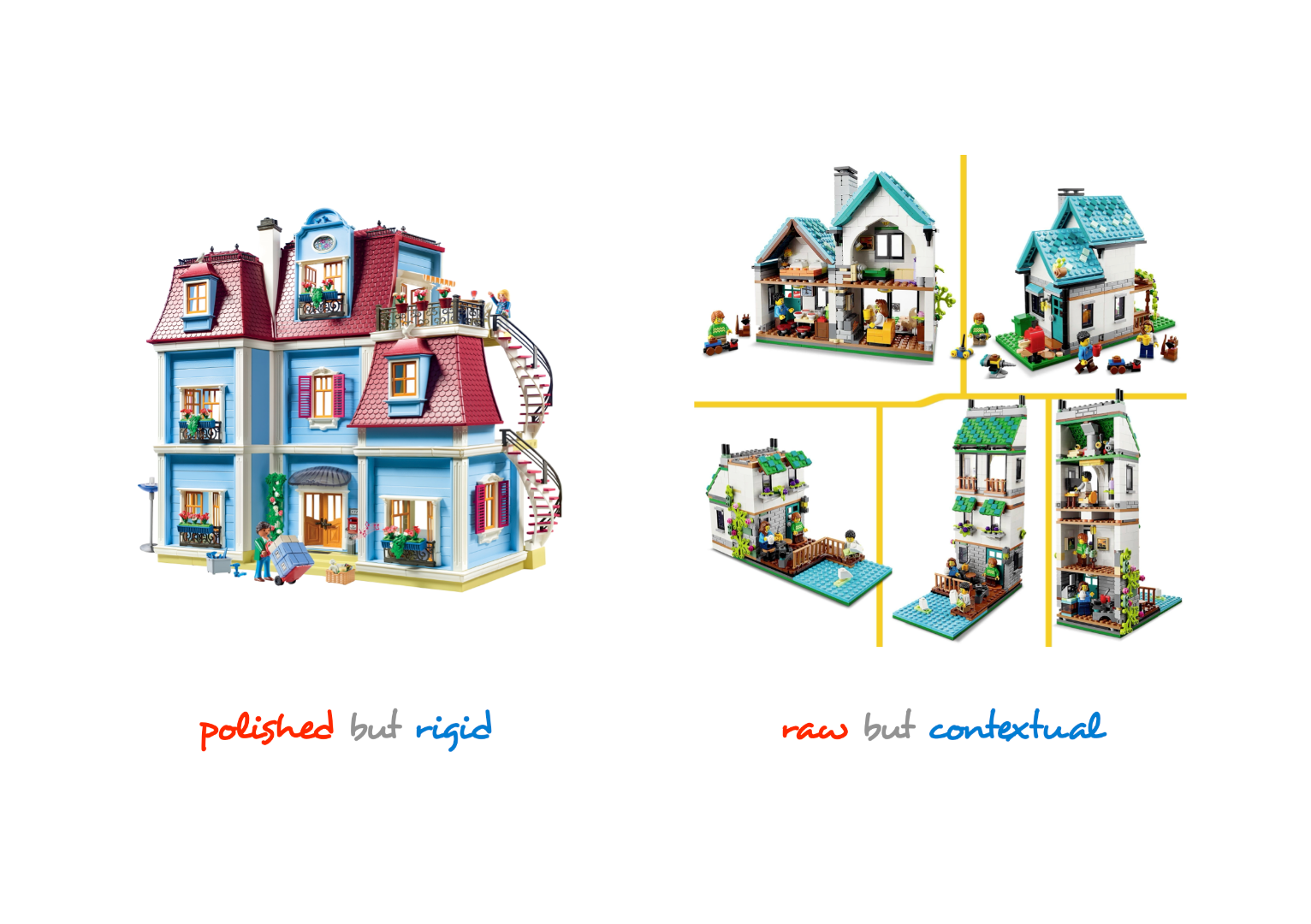Playmobil gives you toys. Lego gives you toys. They look equivalent. But at a closer inspection, they are not quite the same. discord.com ![]()

Playmobil vs Lego
Playmobil gives you polished convenience. You want a house and you get a house. You can change it some, but it's mostly what you get out of the box. The key is that it is polished and works without effort.
Lego is much more raw. You do not quite get a house. You get tiny pieces and a plan that you have to follow to assemble in a house. The process requires effort and focus. And when you get the house, it is not quite as polished as one might expect – you kind of have to look beyond the asperities to see the house. And maybe you missed a piece and when compared with the Playmobil house it is quite easy to perceive it as less satisfactory: it takes both effort and the result is not as good. So why would anyone bother with Lego?
Because the pieces are assembled following a language. There are many pieces, but few ways to assemble them. The magic lies in the assemblage. That's the polished part. The plan you get with the box is merely an example of what can be built with the system. Once you learn the assembling language you can build your own house. Or a plane if you so fancy. Within few constraints, it's entirely up to you. You get agency. Both of these propositions have their audiences. It is just important to choose the expectation before you pick the one you wish. In a world of software environments, GT is squarely in the latter camp. Even when we play we should consider the impact of our toys' properties on ourselves. When we engineer, that impact has arguably even larger implications. I am not an education specialist, but when it comes to engineering agency should be considered fundamental. And agency can be at odds with polished convenience. –– Tudor "Doru" Girba